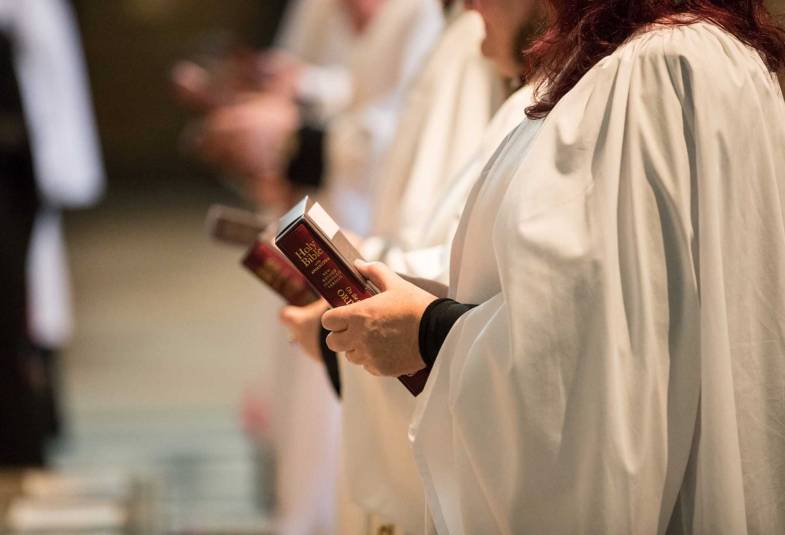
Financial support available
Your tuition fees will be paid for you by your diocese, funded by a block grant from the Church of England’s Ministry Division. We also have a series of grants available to support your living, study, and travel costs.
The amount you receive depends primarily on the type of training pathway you are following and the extent of your own financial circumstances.
Any questions on financial support should be directed to your diocese.
- Financial information for recommended candidates (789.28 KB)
- Ordination Training Grant Form (105.5 KB)
Testimony: Rachel Bedford
Rachel was unsure what vocation looked like. Her story shows having a family can be a strength to ministry, not a burden.
Help in emergencies
Supported by the Church Times, the Train a Priest fund provides grants to ordinands experiencing special hardship.
We recognise that sometimes life throws you unexpected challenges, and we do our best to ensure that when this happens your training is not affected.
If you need to apply for a special hardship grant you can do so through your diocese or college/course.
Continuing students (who started prior to 2017)
If you started training prior to 2017 the financing for your training will have been slightly different to what is described elsewhere on this website. We’ve recently revamped the way we fund ministerial education, to ensure we are able to continue to support the growth we want to see. It’s being introduced in stages, so if you started training before 2017 you will continue to be funded directly from Ministry Division as before.
Support for dyslexic, deaf, or disabled candidates
Disability is no barrier to exploring your calling. There are many ministers, both lay and ordained who live with disability, yet nonetheless flourish in ministry.
Our commitment is to help you discover what kind of calling is best suited to you, and to ensure you are able to fully access ordination training.
Reasonable adjustments will be made to enable you to access selection and training on an equal basis with those who are not disabled. But we want to go beyond that. We want to be an enabling church rather than a disabling church.
It may well be that you want advice and encouragement from others who have faced the same challenges as you do. In this case our National Disability Adviser, Roy McCloughry and our National Deaf Ministry Adviser, Gill Behenna may be able to put you in touch with somebody who has been ordained or is working as a lay minister who can encourage you and answer your questions.
Additional support is also available to support dyslexic, deaf, or disabled ordinands through training. In the first instance you should contact your Diocesan Director of Ordinands, or the principal of your theological education institution for more information.
You may also like to take a look at some the organisations we work with:
The Torch Trust Fellowship and resources for people with sight loss
Through the Roof Making the good news available to everyone
Churches for All Creating a better church environment for disabled people
- Ordinand
-
Someone who is currently being trained to be a member of the clergy.
- Diocese
-
Main administrative and pastoral area in the Church of England – often roughly coincides with local county boundaries. There are 42 dioceses.